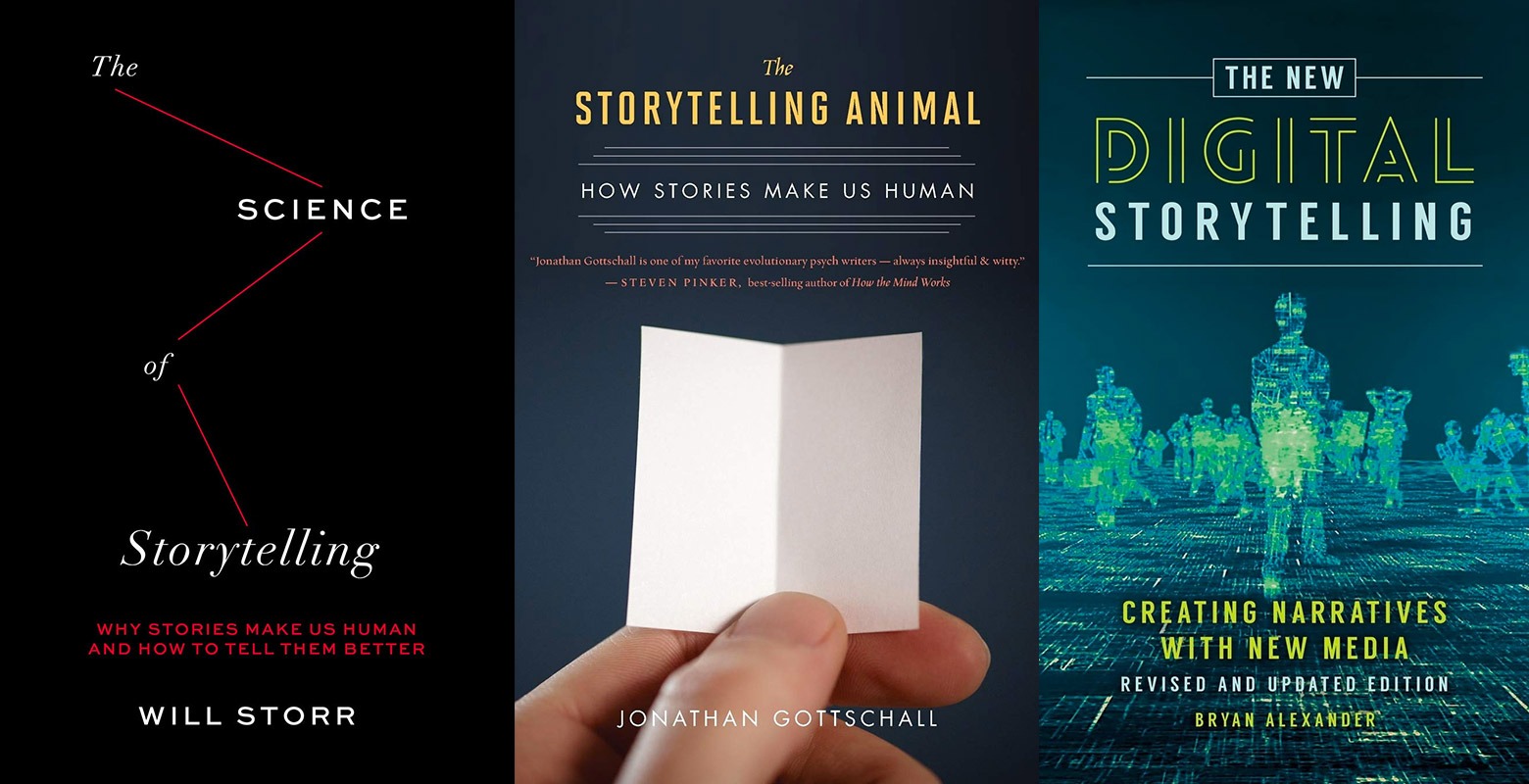Storytelling is as old as mankind. It has connected us with each other and is an essential element of community. Stories foster empathy and are powerful ways to share, motivate and teach each other.
Storytelling is also a critical part of human interaction. Science tells us that our brains love stories. Why? Because stories can release the “love hormone” oxytocin, which enhances the sense of empathy and ability to experience others’ emotions.
Now, with the help of technology, stories can be shared instantly between people a world apart. We can find stories on social media sites like Facebook and Snapchat; in videos on YouTube; and through streaming content on platforms like Netflix. Constantly evolving technology encourages digital storytellers to develop their understanding of storytelling and new media.
A way to broaden this knowledge is by reading—here are three books on digital storytelling to peruse.
The Science of Storytelling: Why Stories Make Us Human and How to Tell Them Better
by Will Storr
An award-winning writer and acclaimed creative writing teacher, Storr wrote this compelling book, which reveals how the brain responds to storytelling. It is a guide that applies psychological research and cutting-edge neuroscience to our myths and archetypes to show how we can write better stories.
It also reveals how storytellers create words by being attuned to moments of unexpected change. The book includes examples ranging from Jane Austen to Alice Walker, Greek drama to Native American folktales and King Lear to Breaking Bad. The Science of Storytelling tells what makes stories work, and it is an excellent resource for all types of writers.
The Storytelling Animal: How Stories Make Us Human
by Jonathan Gottschall
Gottschall tells readers what it means to be a “storytelling animal” in this insightful book that draws from the latest research in neuroscience, psychology and evolutionary biology.
Stories bind us together around common values and shape us. The more absorbed you are in a story, the more it changes your behavior, Gottschall suggests. These behaviors can be positive or reveal a darker side. For example, fiction can fuel empathy while certain conspiracy theories, advertisements and other narratives can bring about more cynical or dismal views.
On the bright side, Gottschall shows how stories can change the world for the better.
The New Digital Storytelling: Creating Narratives with New Media
by Bryan Alexander
Looking for a book that gives practical advice about digital storytelling? Then, this is for you. It combines history and analysis of digital storytelling and offers guidance on how to create and share stories using current digital tools and methods.
The book is for anyone interested in the communication potential of digital media, including marketing and communications professionals. Updated to include the many ways the digital media field has advanced, readers will find relevant information that addresses new and transformed technologies. Alexander describes the narrative creation process with blogs, podcasts, video, digital imagery, games, social media, and augmented reality―all platforms that offer new pathways for creativity, interactivity and self-expression.
Learn More About Digital Storytelling at Carlow University
Bachelor’s in Communications and Creative Writing majors at Carlow University can add a minor in Digital Storytelling to learn how to tell engaging stories within the multimedia landscape. Digital Storytelling students create videos, podcasts, blogs, feature stories and other digital content on topics they are passionate about. Develop your skills in writing, research, interviewing, and creative thinking, while also learning visual and audio media production by studying in a Digital Storytelling minor.
